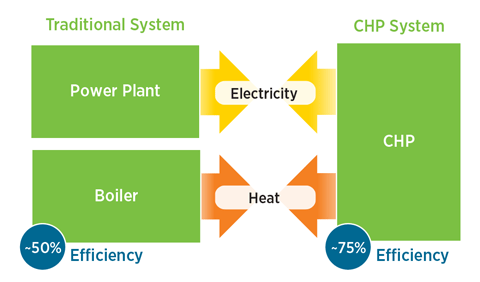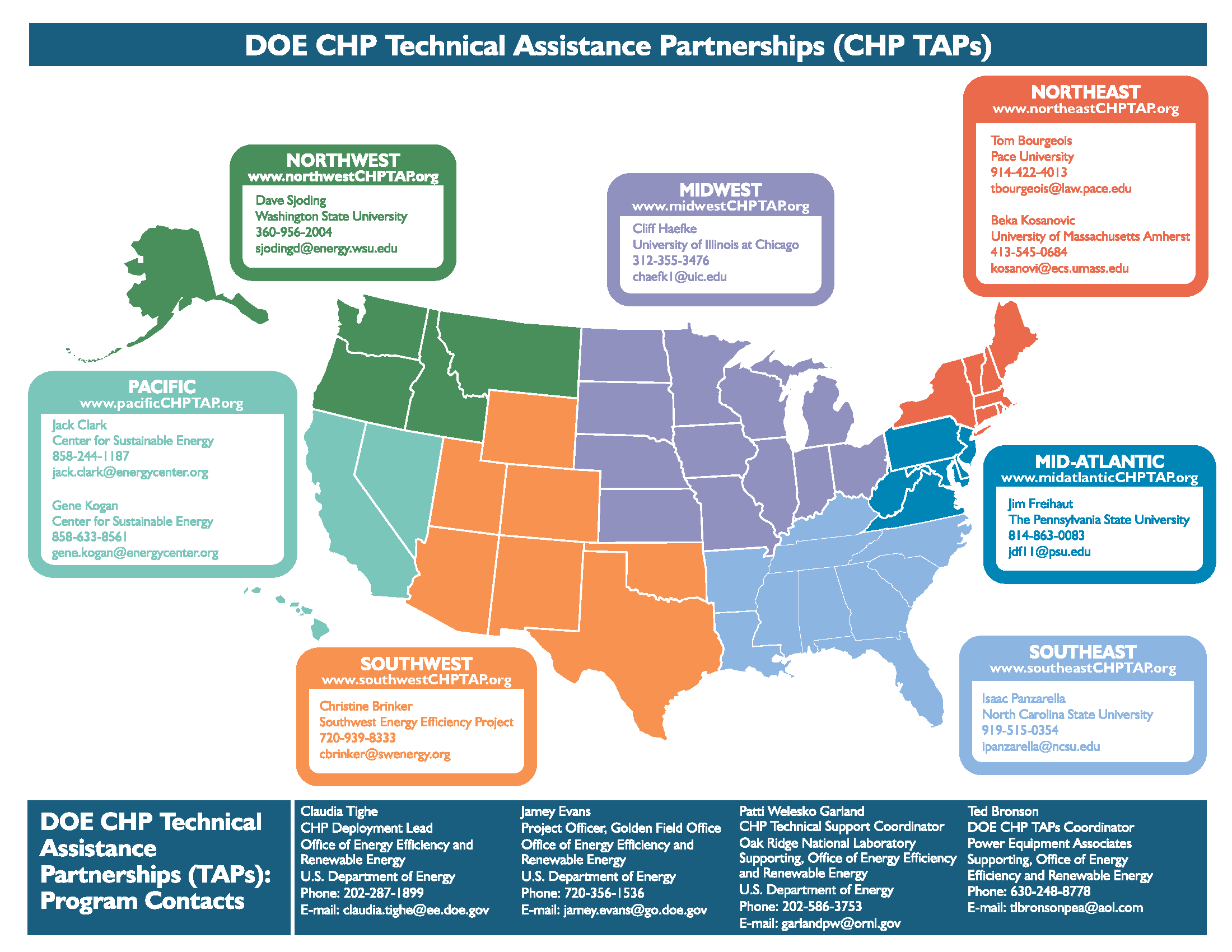Typically, describing the benefits of combined heat and power (CHP) systems are concentrated around the total energy efficiency improvements associated with utilizing the waste heat from on-site electricity generation. Perhaps the most logical explanation for this is stems from how maximizing energy efficiency by extracting more value from each Btu of energy is directly conducive to lowering energy costs. There are however, additional benefits of combined heat power systems that are worth noting.
Read More
Topics:
Energy Conservation,
New Technology,
Commercial,
Industrial,
Combined Heat and Power
The Department of Energy defines Combined Heat-Power (CHP) as the concurrent production of electricity or mechanical power and useful thermal energy (heating and/or cooling) from a single source of energy. Simply put, CHP systems use the waste heat associated with generating on-site electricity for some other useful purpose. By using this waste heat for a secondary application, CHP systems maximize the efficiency of the input fuel by simultaneously achieving multiple objectives. In other words, CHP systems give you more bang for your energy dollar.
Read More
Topics:
Energy Conservation,
New Technology,
Energy Efficiency,
Commercial,
Industrial,
Combined Heat and Power
Typically, describing the benefits of combined heat and power (CHP) systems are concentrated around the total energy efficiency improvements associated with utilizing the waste heat from on-site electricity generation. Perhaps the most logical explanation for this is stems from how maximizing energy efficiency by extracting more value from each Btu of energy is directly conducive to lowering energy costs. There are however, additional benefits of combined heat power systems that are worth noting.
Read More
Topics:
Energy Conservation,
New Technology,
Commercial,
Industrial,
Combined Heat and Power
(Photo: Win McNamee, Getty Images)
Although many have grown cynical of the possibility of bipartisan policy agreement in Washington DC these days, it’s refreshing to know that both parties can reach an agreement when dealing with really important issues such as energy. On April 30th 2015, the Energy Efficiency Improvement Act of 2015 (S. 535) was officially signed into law by the president after passing both chambers of Congress.
Read More
Topics:
Energy Conservation,
Economic Development,
New Technology,
Energy Efficiency,
Commercial,
Industrial,
Combined Heat and Power
In an effort to combat combined heat power weariness and hesitation, the Department of Energy has a resource specifically designed to help facilitate CHP installations. If the idea of not just consuming energy but producing energy is something that interests you, your business, and your bottom line, help is available.Business owners and building operators are being urged to reach out to the Department of Energy’s Combined Heat Power Technical Assistance Program to coordinate with a regional office to determine how much of a reality this will be for you.
(Source: U.S. Department of Energy)
More on the Inspiration Behind the DOE CHP Technical Assistance Partnerships Program
Whenever a new technology redefines a specific market segment, business owners and building operators often find themselves at a difficult crossroads. This is often the case with combined heat power (CHP) technology systems, which completely redefine the energy interactional experience that end users share with their energy providers.
Read More
Topics:
Energy Conservation,
New Technology,
Energy Efficiency,
Commercial,
Industrial,
Combined Heat and Power
The Department of Energy defines Combined Heat-Power (CHP) as the concurrent production of electricity or mechanical power and useful thermal energy (heating and/or cooling) from a single source of energy. Simply put, CHP systems use the waste heat associated with generating on-site electricity for some other useful purpose. By using this waste heat for a secondary application, CHP systems maximize the efficiency of the input fuel by simultaneously achieving multiple objectives. In other words, CHP systems give you more bang for your energy dollar.
Read More
Topics:
Energy Conservation,
New Technology,
Energy Efficiency,
Commercial,
Industrial,
Combined Heat and Power





